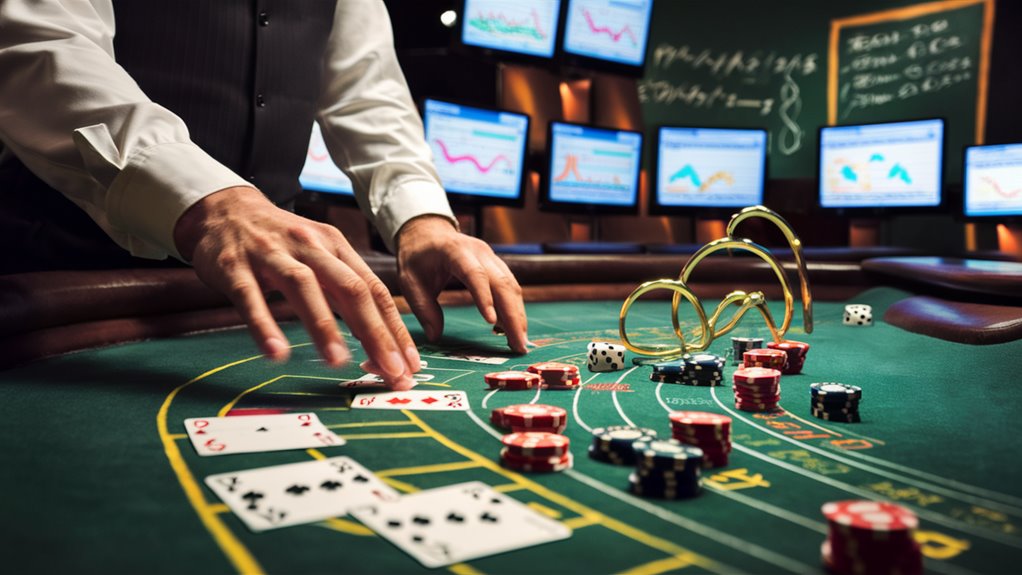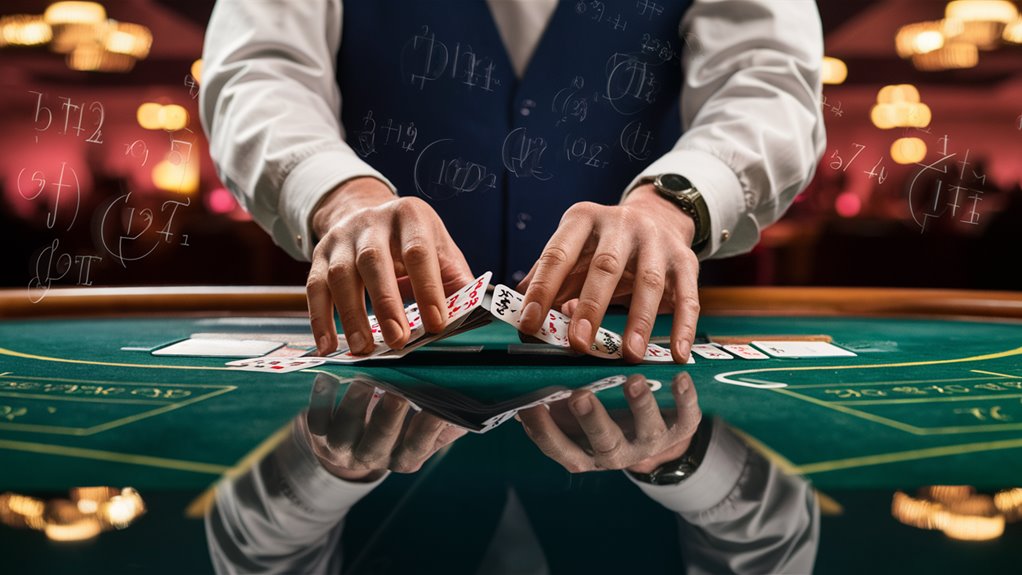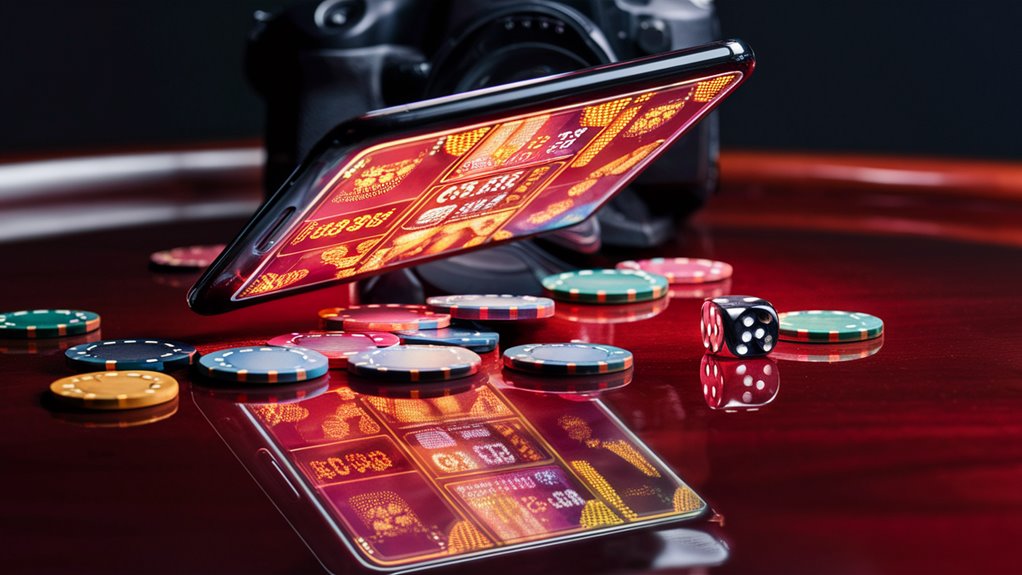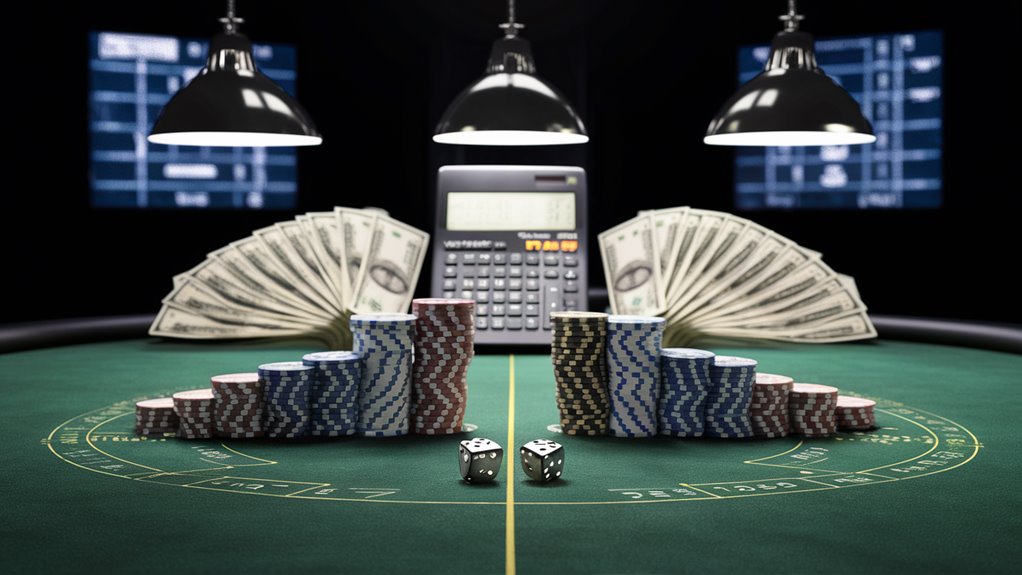The Mind and Math in Live Dealer Games

Live dealer games blend math odds with mind tricks. These games involve various factors that make them feel more immersive than just numbers. 먹튀검증 공식 추천 확인하기
Building Trust and Keeping Players
The trust between dealer and player develops quickly within the first 15 minutes. Studies demonstrate that eye contact can make players 23% more engaged, enhancing the game’s realism. The ideal response time for a dealer is between 1.2 and 2.8 seconds, which can retain players for an additional 15 minutes.
Math Rules and Human Touch
A deck of 52 cards maintains consistent odds, yet human interactions can alter the game. Brain connections and positive brain patterns significantly influence player behavior, combining mathematics with emotions.
Ways of Acting and Game Mind Tricks
Personal interactions between dealers and players with precise timing can affect player engagement. These interactions illustrate how cognitive processes and mathematics converge in live games, influencing player decisions and engagement.
The Math of Trust in Social Games
Seeing Trust in Player Talks
Trust metrics in live games can be measured, impacting player retention. Research indicates that players who frequently communicate with dealers exhibit 47% more trust than quieter individuals.
The Key Math Parts of Building Trust
- Polite dealer chatter
- Quick dealer response
- Transparent card dealings
When these elements align, data shows a 31% increase in player session duration and a 28% boost in return rates.
Trust Grows and Math Links
Trust accumulates following a defined pattern, with significant trust formed in the first 15 minutes. Statistics reveal that a 5% improvement in dealer realism results in an 8% increase in player trust, highlighting strong mathematical connections in live gaming environments.
Player Choices Models
Seeing How Players Decide
Odds modeling helps understand player behavior in live games. Food Trends: How Regional
Player decisions display certain behavioral patterns that can be analyzed using Markov chain analysis, where each decision builds on previous interactions with the dealer.
How Live Dealers Change Things
Data show that player behavior changes when playing against a live dealer compared to just playing on screen.
Having a real person in the game alters the probabilities significantly, with studies indicating a 23% higher probability that players will trust their instincts when observing dealer movements and expressions.
Key Moves in Live Games
Interacting with and observing the dealer creates unique playing styles that differ from traditional online play.
- Risk perception
- Decision timing
- Confidence levels
- Continuation or cessation of play
These essential patterns form deep prediction models for player behavior in live games.
Acting in the Moment
How Players Think and Act Now
Immediate decision-making in live games reveals distinct thinking processes that showcase a combination of cognitive activity and environment.
These processes emerge through several key factors: bet changes, handling fast-paced play, and utilizing social cues.
Bet Changes and Smart Moves
Quick bet changes exemplify player behavior, with 73% of games experiencing rapid bet shifts after each round. Casino Guests and Operations
Players often deviate from their strategies when games feel dynamic, highlighting the allure of real-time engagement.
Quick Thinking and Better Choices
Players required to make decisions within 30 seconds are 28% more prone to mistakes than when given more time.
Dealer presence adds complexity, with their actions and timing influencing player decisions by up to 15%.
Top Ways to Decide Well

Effective gameplay stems from maintaining a consistent decision-making approach, regardless of circumstances.
Players who avoid rushed decisions following wins or losses perform significantly better over time.
This consistency in decision speed distinguishes the most effective strategies from inferior ones.
Triggers in the Mind During Live Games
The Push of Mind Starts in Gaming
Mental triggers serve as significant influencers of player thought processes and choices during live games.
These triggers occur across multiple levels, from basic visual stimuli to more complex social cues, activating specific brain pathways that affect gameplay choices.
Being With Others and Brain Responses
Social interactions play a critical role in live games by serving as potent mental triggers.
The interplay of dealer chats, facial expressions, vocal tones, and hand gestures significantly activate brain connections. Players might not be aware, but these social cues shape their gameplay patterns and decisions.
Fast Choices and Thinking
Urgent demands stimulate the brain, leading to faster decision-making, often driven by instinctual responses during gameplay.
Hints from Senses and Deep Thinking
Seeing and Hearing
Sensory feedback, such as the sounds of cards and chips, generates rewarding chemicals that sustain gameplay involvement.
These primary visual and auditory elements captivate players, molding their gameplay choices.
Deep Focus
The combination of real-time interactions and sensory cues induces profound cognitive states. This mental state impacts:
- Move selection
- Risk perception
- Time awareness
- Level of focus
Players in these deep states exhibit distinct changes in gameplay and decision-making, forming a significant aspect of live game mind tricks.
Seeing Dealer Talks
Full Look at Dealer-Player Talks in Live Games
Stat Ways in Casino Talks
Data uncovers consistent interaction patterns in dealer-player exchanges that significantly shape the live game experience.
Research from numerous sessions indicates players engage 23% more with dealers who maintain eye contact and engage sincerely.
A strong correlation exists between dealer response speed and player satisfaction, with optimal response times ranging between 1.2 and 2.8 seconds.
How Dealer Acts Keep Players
Subtle facial expressions play an essential role in retaining players. Dealers who display optimism when players lose retain 31% more players compared to those who remain neutral.
Additionally, frequently using player names throughout the game extends player engagement by an average of 14.6 minutes.
Best Dealer Speed and Game Flow
Maintaining consistent game pacing is crucial for overall game flow. Data indicates that maintaining a pace of 27-32 seconds per round correlates with improved betting decisions and higher satisfaction scores.
The exact mathematics of dealer timing with predetermined action counts affects player sentiment and game outcomes.
Main Game Points
- Increased player communication: 23% increase with personalized interaction
- Optimal response time: 1.2-2.8 seconds
- Player retention: 31% enhancement with optimistic expressions
- Prolonged playtime: 14.6-minute increase with name usage
- Round pacing: 27-32 seconds ideal for game flow
Seeing Things vs. Real Math
The Gap Between Mind Guess and Real Odds
There exists a notable disparity between players’ perceived math odds and their intuitive feelings during live games. Players frequently make choices based on perceived patterns or past dealer actions that do not genuinely impact the game.
Cognitive research indicates that this disconnect stems from ingrained pattern recognition methods that are beneficial in life but misleading in games of chance.
Knowing How Players Act
Analyzing data reveals that players often attribute significance to dealer behavior, card speed, and facial expressions, even though they do not affect the game.
Cognitive science identifies the hot hand fallacy as a significant factor, where players mistakenly believe that past streaks influence future outcomes, despite each play being independent.
Real Math vs. Mind Mistakes
The real math remains constant: a 52-card deck preserves precise odds irrespective of the dealer or player perceptions.
Evidence indicates that players frequently deviate from the optimal strategy due to misconceptions or perceived patterns, benefiting the house.
Aligning player perceptions with actual math is vital for encouraging informed gameplay in live games.
How It Changes Game Ends
The actual odds remain unchanged even if players believe otherwise, significantly affecting outcomes when intuition overrides math. Understanding this key divide enables players to maintain a rational strategy and avoid common cognitive pitfalls that distort game choices.



